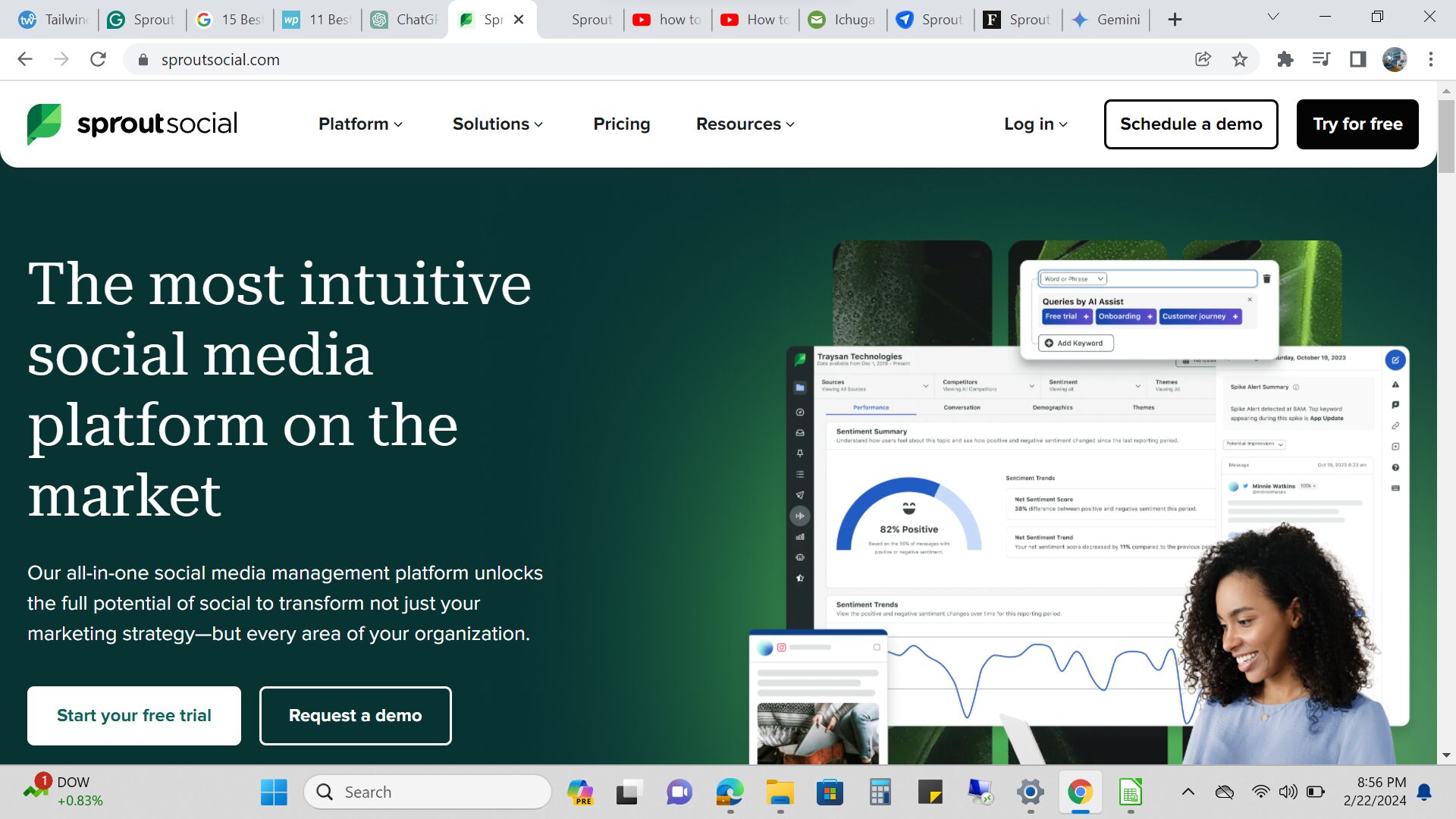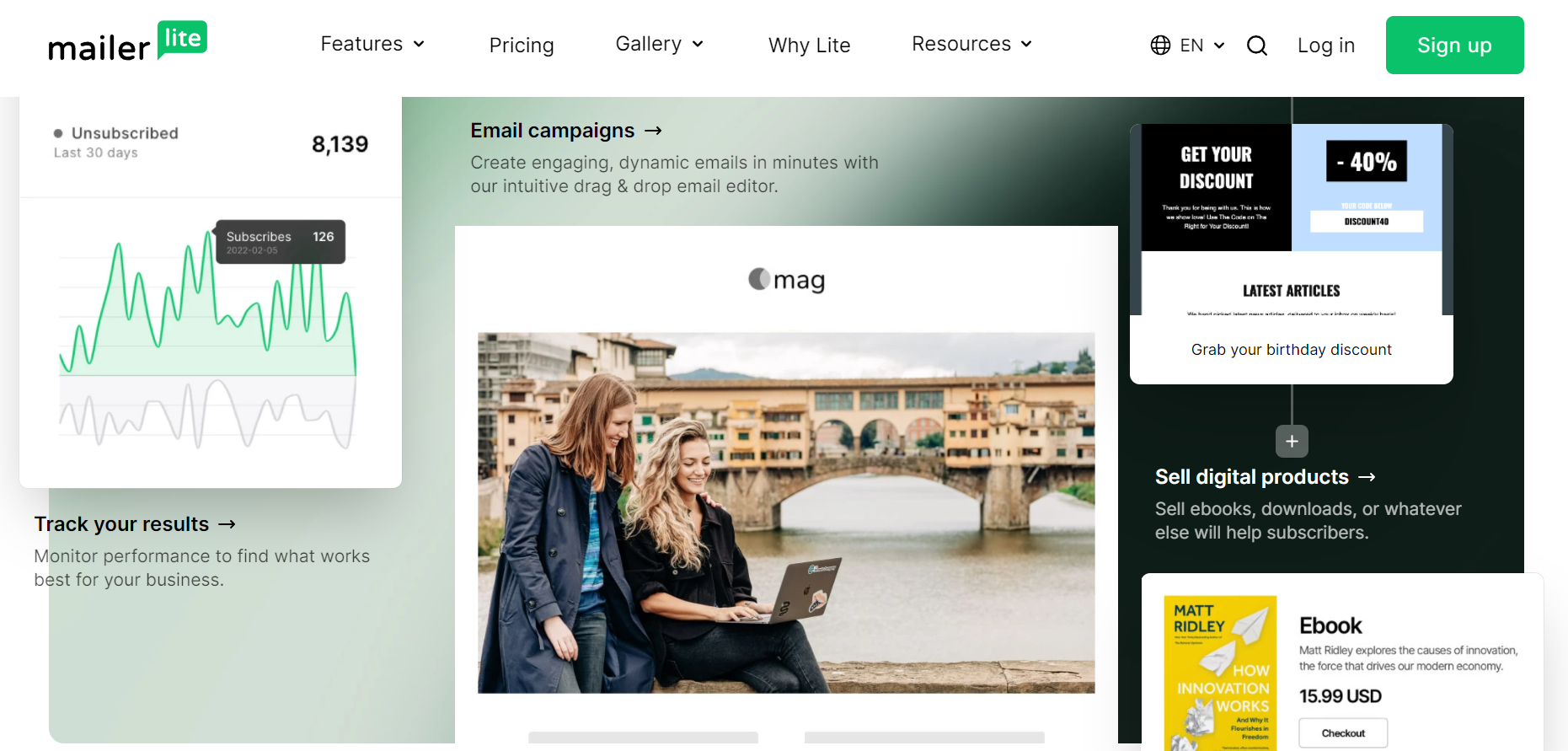What are SEO Tools?
SEO tools are software programs that help website owners to optimize their sites for search engines. These tools provide valuable insights into how well a website is performing in search engine rankings and what improvements can be made.
Examples of popular SEO tools include SEMrush, Ahrefs, Moz, and Google Analytics. These tools can help with keyword research, site audits, backlink analysis, competitor analysis, and more. By using SEO tools, website owners can better understand how to improve their site’s visibility and attract more traffic from search engines.
Top On-Page SEO Factors to Consider
On-page SEO factors refer to the elements on a website that can be optimized to improve its visibility in search engine results pages (SERPs). Here are some of the top on-page SEO factors to consider:
1. Title tags and meta descriptions:
These are HTML elements that provide a summary of a web page’s content. They should include the target keyword and be enticing enough to encourage users to click through to the website.
2. Header tags:
H1, H2, and H3 tags help search engines understand the structure and hierarchy of the content on a page.
3. URL structure:
A clear and concise URL structure can help search engines and users understand what a page is about.
4. Content optimization:
Content should be relevant, valuable, and optimized for the target keyword, while also being easy to read and engaging.
5. Image optimization:
Images should be compressed, have alt tags, and be relevant to the content on the page.
6. Internal linking:
Linking to other pages on the same website can help search engines understand the structure of the website and improve user navigation.
By optimizing these on-page SEO factors, website owners can improve their website’s search engine rankings and attract more organic traffic to their site.
How much should I spend on SEO Tools?
The amount that a business should spend on SEO will vary depending on several factors, including the size of the business, the industry, the competition, and the goals of the SEO campaign.
In general, SEO can be a long-term investment, and it’s important to allocate a budget that will allow for sustained efforts over time. As a rough guideline, some experts recommend that businesses spend between 5-10% of their annual revenue on marketing, with a portion of that budget dedicated to SEO.
However, it’s important to keep in mind that SEO is not a one-size-fits-all solution, and what works for one business may not work for another. It’s important to work with an experienced SEO professional or agency to develop a customized strategy that aligns with the specific goals and budget of the business.
Ultimately, the amount that a business should spend on SEO will depend on a variety of factors, and it’s important to carefully consider these factors and develop a strategy that is tailored to the unique needs of the business.
List of best SEO tools
1. Jaspar
2. surfer
3. ahrefs
4. Scalenut
5. Growthbar
6. SEMrush
7. Advanced Web Ranking
8. SERanking
9. Sitechecker
10. Authority Labs
What are the best free SEO tools?
1. Jaspar:
Jasper is an SEO tool that provides users with insights into the performance of their website in search engine rankings. Key features of Jaspar include keyword research, site audits, and backlink tracking. The tool also provides users with recommendations for improving their website’s visibility in search engine results pages (SERPs).
Jasper offers a free trial, with pricing starting at $49 per month.
Jasper is best used for small to medium-sized businesses that are looking to improve their website’s search engine visibility. Some cons of Jaspar include limited customization options and a relatively high price point compared to other SEO tools.
2. Surfer:
Surfer is an SEO tool that helps users to optimize their website’s content for search engines. Key features of Surfer include keyword research, content analysis, and on-page optimization. The tool also provides users with recommendations for improving their website’s content to increase its visibility in search engine results pages (SERPs).
Surfer offers a free trial, with pricing starting at $59 per month.
Surfer is best used for businesses that are looking to improve their website’s content and increase its visibility in search engine results pages. Some cons of Surfer include limited reporting capabilities and a relatively high price point compared to other SEO tools.
3. Ahrefs:
Ahrefs is an SEO tool that provides users with insights into their website’s performance in search engine rankings. Key features of Ahrefs include keyword research, site audits, and backlink tracking. The tool also provides users with recommendations for improving their website’s visibility in search engine results pages (SERPs).
Ahrefs offers a free trial, with pricing starting at $99 per month.
Ahrefs is best used for businesses that are looking to improve their website’s search engine visibility and monitor their competitors’ performance. Some cons of Ahrefs include a relatively high price point and a steep learning curve for new users.
4. Scalenut:
Scalenut is an AI-powered content optimization tool that helps businesses create high-quality content that is optimized for search engines. Key features of Scalenut include content analysis, keyword research, and on-page optimization. The tool also provides users with recommendations for improving their website’s content to increase its visibility in search engine results pages (SERPs).
Scalenut offers a free trial, with pricing starting at $29 per month.
Scalenut is best used for businesses that are looking to improve their website’s content and increase its visibility in search engine results pages. Some cons of Scalenut include limited reporting capabilities and a relatively high price point compared to other SEO tools.
5. Growthbar:
Growthbar is an SEO tool that provides users with insights into their website’s performance in search engine rankings. Key features of Growthbar include keyword research, site audits, and backlink tracking. The tool also provides users with recommendations for improving their website’s visibility in search engine results pages (SERPs).
Growthbar offers a free trial, with pricing starting at $29 per month.
Growthbar is best used for small to medium-sized businesses that are looking to improve their website’s search engine visibility. Some cons of Growthbar include limited customization options and a relatively high price point compared to other SEO tools.
6. SEMrush:
SEMrush is an SEO tool that provides users with insights into the performance of their website in search engine rankings. Key features of SEMrush include keyword research, site audits, and backlink tracking. The tool also provides users with recommendations for improving their website’s visibility in search engine results pages (SERPs).
SEMrush offers a free trial, with pricing starting at $119 per month.
SEMrush is best used for businesses that are looking to improve their website’s search engine visibility and monitor their competitors’ performance. Some cons of SEMrush include a relatively high price point and a steep learning curve for new users.
7. Advanced Web Ranking:
Advanced Web Ranking is an SEO tool that helps users track their website’s performance in search engine rankings. Key features of Advanced Web Ranking include keyword research, site audits, and competitor analysis. The tool also provides users with recommendations for improving their website’s search engine visibility.
Advanced Web Ranking offers a free trial, with pricing starting at $49 per month.
Advanced Web Ranking is best used for businesses that are looking to track their website’s performance in search engine rankings and monitor their competitors’ performance. Some cons of Advanced Web Ranking include limited customization options and a relatively high price point compared to other SEO tools.
8. SERanking:
SERanking is an SEO tool that provides users with insights into their website’s performance in search engine rankings. Key features of SERanking include keyword research, site audits, and backlink tracking. The tool also provides users with recommendations for improving their website’s visibility in search engine results pages (SERPs).
SERanking offers a free trial, with pricing starting at $39 per month.
SERanking is best used for small to medium-sized businesses that are looking to improve their website’s search engine visibility. Some cons of SERanking include limited reporting capabilities and a relatively high price point compared to other SEO tools.
9. Sitechecker:
Sitechecker is an SEO tool that helps users optimize their websites for search engines. Key features of Sitechecker include site audits, keyword research, and on-page optimization. The tool also provides users with recommendations for improving their website’s visibility in search engine results pages (SERPs).
Sitechecker offers a free trial, with pricing starting at $29 per month.
Sitechecker is best used for businesses that are looking to improve their website’s search engine visibility and overall performance. Some cons of Sitechecker include limited customization options and a relatively high price point compared to other SEO tools.
10. Authority Labs:
Authority Labs is an SEO tool that helps users track their website’s performance in search engine rankings. Key features of Authority Labs include keyword research, site audits, and competitor analysis. The tool also provides users with recommendations for improving their website’s search engine visibility.
Authority Labs offers a free trial, with pricing starting at $49 per month.
Authority Labs is best used for businesses that are looking to track their website’s performance in search engine rankings and monitor their competitors’ performance. Some cons of Authority Labs include limited customization options and a relatively high price point compared to other SEO tools.
conclusion
In conclusion, SEO tools are essential for website owners who want to improve their website’s search engine visibility and attract more organic traffic. These tools provide invaluable insights into how a website is performing in search engine rankings and what improvements can be made to optimize it for search engines. By optimizing the top on-page SEO factors, businesses can improve their website’s search engine rankings and attract more organic traffic to their site.
Additionally, working with an experienced SEO professional or agency to develop a customized strategy that aligns with the specific goals and budget of the business is highly recommended. With the help of the best SEO tools available in the market, website owners can make informed decisions to improve their website’s search engine visibility and achieve their business objectives.
FAQ
Q: What are SEO tools?
A: SEO tools are software programs designed to help website owners and digital marketing professionals improve their website’s search engine rankings. They provide insights and data about your website’s performance, as well as suggestions for improving your SEO strategy.
Q: What are some popular SEO tools?
A: Some popular SEO tools include SEMrush, Ahrefs, Moz, Google Analytics, Google Search Console, and Yoast SEO.
Q: How do I choose the right SEO tool for my business?
A: The right SEO tool for your business will depend on your specific needs and budget. Consider factors such as the size of your website, the level of competition in your industry, and the features you need to optimize your SEO strategy.
Q: Can SEO tools guarantee improved search engine rankings?
A: No, SEO tools cannot guarantee improved search engine rankings. While they can provide valuable insights and data, it’s up to you to use that information to make strategic improvements to your website and content.
Q: Are all SEO tools paid?
A: No, not all SEO tools are paid. While many of the most popular SEO tools are paid, there are also free options available such as Google Analytics, Google Search Console, and Yoast SEO.
Q: Can I use multiple SEO tools at once?
A: Yes, many website owners and digital marketing professionals use multiple SEO tools to gain a comprehensive understanding of their website’s performance and identify opportunities for improvement.




